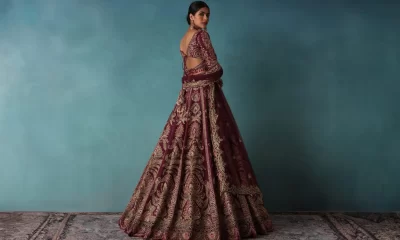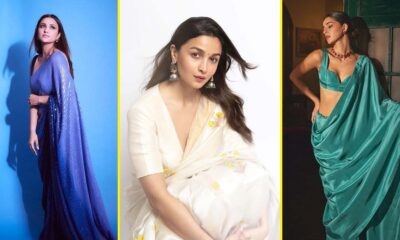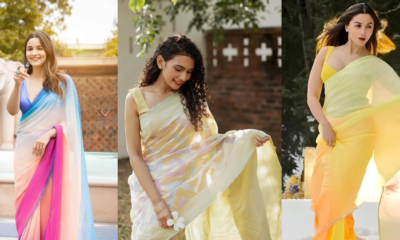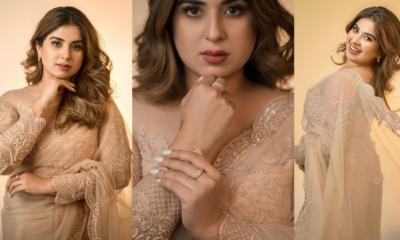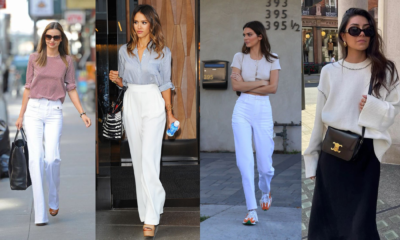Fashion
Up Your Fashion Quotient With Khadi Denims From DesiTude
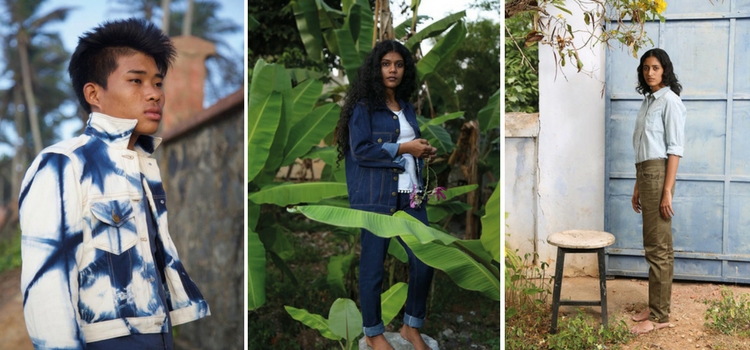
Khadi jeans is the newest entrant in the fashion circles as Siddharth Mohan Nair tries to make a difference with his brand ‘DesiTude’
Text Credits: Charishma Thankappan Image Credits: DesiTude
His face is a curious combination of contradictions. With a clean-shaven look and well-kept hairstyle, he exudes a look of seriousness; his wide, exuberant smile though, is exceptionally warm and friendly. All of 26 years, Siddharth Mohan Nair might give off politician or government official vibes due to his appearance, and it comes as a big surprise to know that he is behind a fashionable brand that is making a change or two in society.
And making a change is what drives Siddharth, who follows the ideals of Gandhism in steering his almost two year old venture, DesiTude – a clothing brand, which has Khadi denim as its USP.
What does being a Gandhian, as Siddharth proclaims himself to be, mean in today’s day and age? “I relate to Gandhi on a personal level and not political,” he says. “Speaking the truth and the concept of ‘swadeshi’ are what I value most.” However, the youngster is clear-headed about the practicalities of the school of thought. “Some of the things that Gandhi professed are not valid in today’s time and age. He emphasised on complete use of swadeshi, but it is impossible for us to follow that today as a lot of things we use today are foreign-made.” Siddharth cites his own example, where he says he is a consumer of internationally made products when it comes to electronics.
But the idea of promoting something indigenous to his land motivated him to venture into the production of garments made out of khadi denim. The idea struck him when he was pleasantly surprised by the khadi jeans that he came across at a Khadi Bhandar store. Khadi also reaffirmed another principle of Gandhism that he follows – that of minimalism. He took it upon himself to further the idea, and started his own label called DesiTude.
Jeans has lasted over the ages as the favoured attire for its characteristic of being a hardy garb, which is durable, needs very little maintenance, and is washed infrequently. Does khadi have the same features? Siddharth puts all doubts to rest. “DesiTude khadi denims are extremely durable despite being pure cotton. Its durability is because of its weaving; there is no additional fibre that is added.” Which is also why the brand proudly declares that their apparel don’t need to be starched or ironed.
Siddharth dispels the notion of khadi being a ‘common man’s cloth’. In the days of yore, the cloth was really cheap and was spun and woven by individuals; but today, handicrafts are expensive. He explains the logic behind DesiTude’s pricing of their garments, which is on the higher side, “The conventional jeans is mill-made, where the fabric is not expensive, and is mass manufactured – so the manufacturing cost per piece is very low. For us, our material is not mill-made, and is very time consuming to be made as it is still spun and woven by hand by workers. Therefore, the fabric cost is very high. And since it is denim, the weaving is difficult. The highest cost that we incur is the fabric cost, which is sourced from Rajkot. Also, we are not manufacturing it on a large scale, as we make it only on a made-to-order basis.”
One of the striking features about the brand is their use of common people in the photographs on their website. Siddharth says, “All advertisements show people as flawless, fair, and tall. Because of that, there is a pressure on people to look like that. We are made to feel bad about our looks and such advertisements want us to aspire to become like those people by using their products. I didn’t want to do anything like that. I want people to buy DesiTude seeing the products worn by ordinary people like them with whom they can relate.”
DesiTude’s buyers are mostly from Bangalore and Mumbai, and as of now, Siddharth is promoting it online. He hopes to have a store soon, and start functioning in Kochi as well.
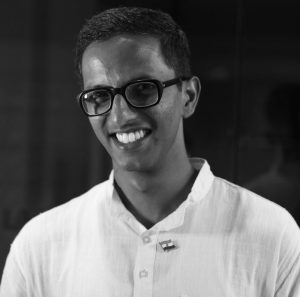
Fashion
Bridal Guide: Top Bridal Fashion Trends of 2025
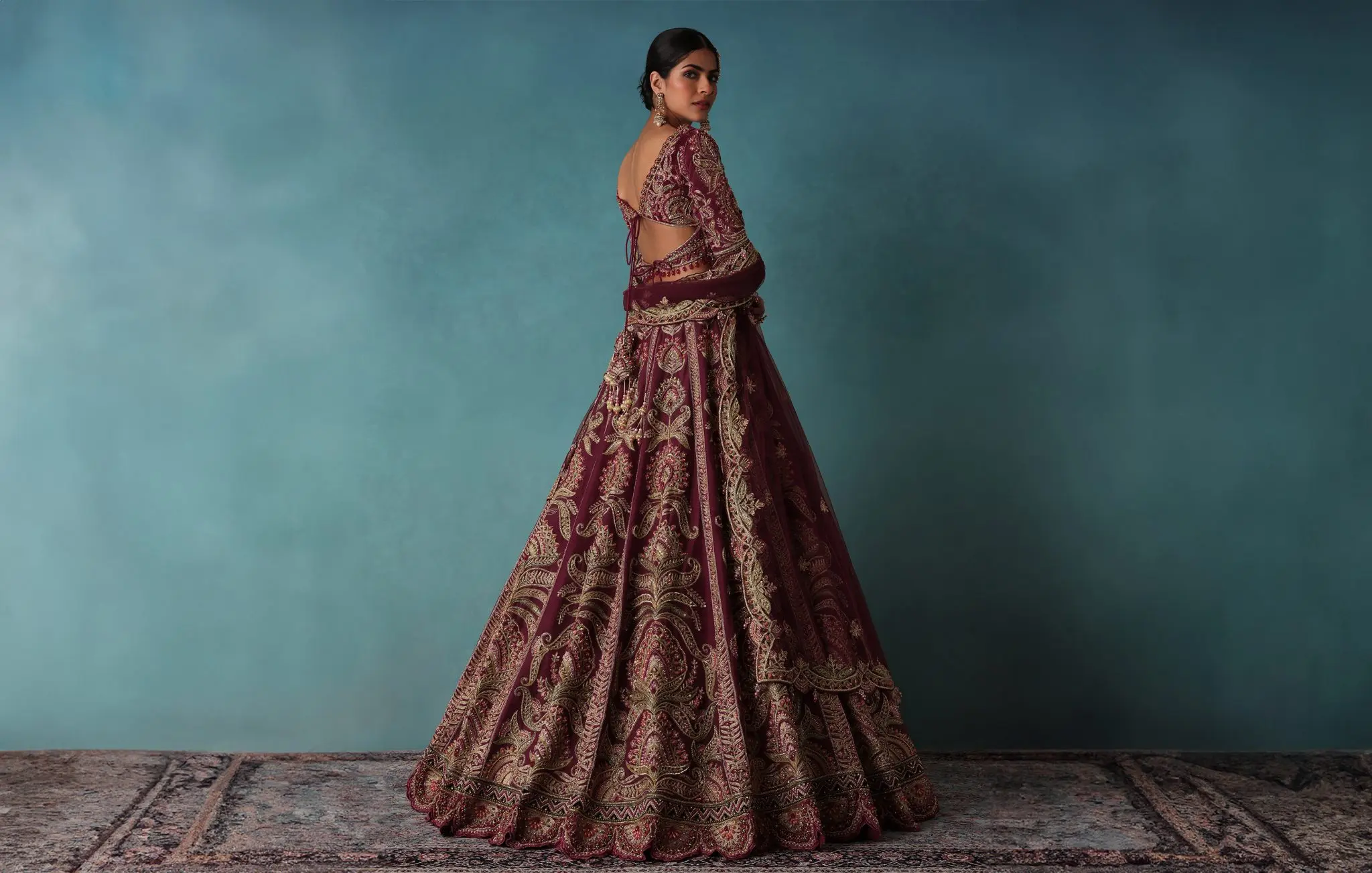
Bridal fashion in 2025 is all about redefining tradition with a touch of modern flair. Whether you’re planning your big day or just love bridal style, here’s a quick look at this year’s top trends.
1. Modern Lehengas
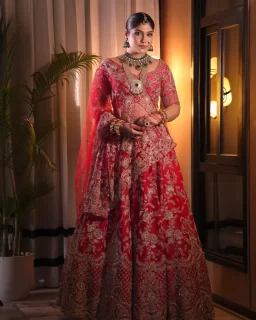
Traditional lehengas get a fresh upgrade with 3D florals, bold shades like mauve and emerald, and rich fabrics like velvet. Expect classic silhouettes with unexpected color and texture combos.
2. Satin Minimalism

Sleek satin gowns are in. With clean lines, off-shoulder cuts, and subtle details, they radiate elegance for brides who prefer understated glam.
3. Sarees, Reinvented
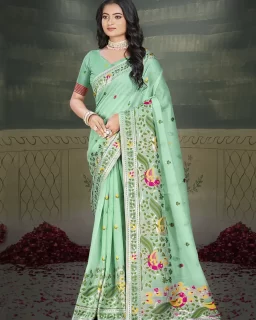
Think tulle, organza, ruffles, and structured blouses. The timeless saree is going experimental — and it’s stunning.
4. Sustainable Bridal Wear
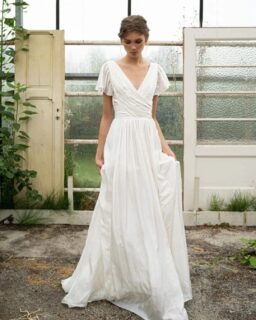
Eco-friendly fabrics, recycled embellishments, and upcycled jewelry are gaining traction, combining beauty with conscience.
5. Vibrant Color Palettes
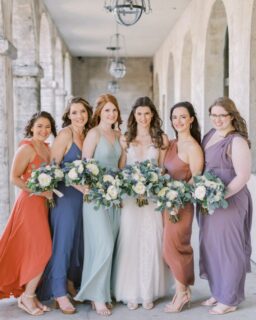
Brides are ditching reds for lavender, emerald, and blush tones. Layered hues bring personality and vibrancy to the aisle.
Bridal Style, Reimagined
2025 bridal fashion is bold, elegant, and deeply personal. Whether you’re leaning classic or contemporary, this year is all about owning your bridal moment — your way.
Fashion
The Year of Statement Hat
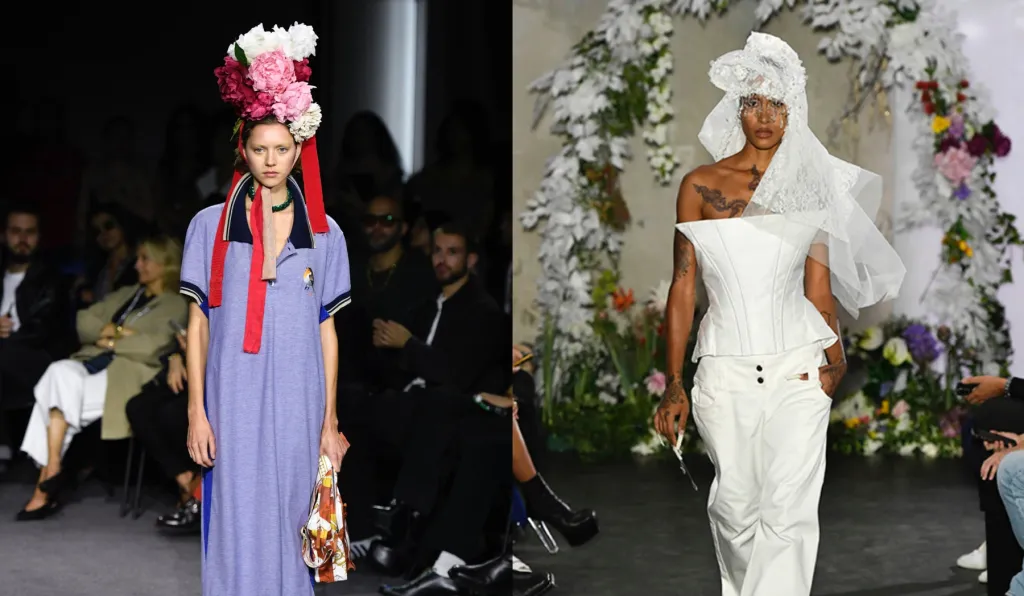
When Anya Taylor-Joy stepped out at this year’s Cannes Film Festival in Jacquemus’ Le Chapeau Bomba, a delightfully oversized raffia hat it was clear that this accessory had become the season’s ultimate statement piece. The fall 2024 runways echoed this sentiment, with Chanel and Prada showcasing hats as the new must-have. Think of Sarah Jessica Parker’s oversized Maryam Keyhani creation, worn on the set of And Just Like That… earlier this year, or Margaret Qualley donning Chanel’s nautical style at Cannes. These hats are for the main characters who command attention, making a bold statement long before you arrive.
Altuzarra’s fall 2024 collection featured boxy headpieces on some models, each designed to evoke a specific character. “It was about finding joy in wearing a complete look, fully embodying a character,” explains designer Joseph Altuzarra. Interestingly, this was the label’s first foray into hats beyond casual knit and woven styles. ‘We didn’t plan to sell them,’ Altuzarra admits, ‘but they ended up being a hit.
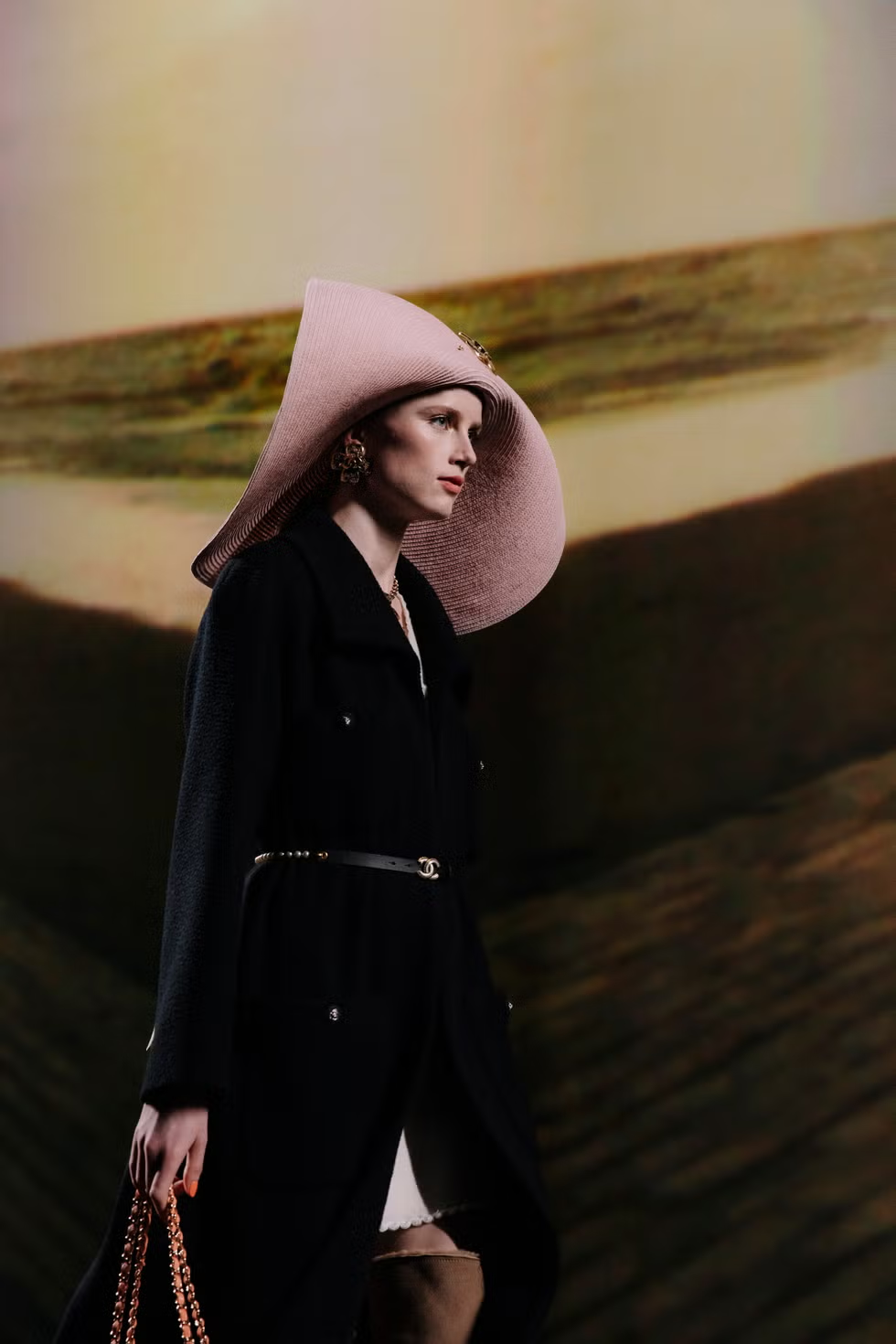
Similarly, milliner Gigi Burris O’Hara has experienced a surge in demand. Although she launched her brand, Gigi Burris, in 2012, she only opened her first store late last year. “During leaner times, when people become more selective with their spending, they seek joy in thoughtful purchases,” she explains.
After years of embracing a more casual style, we’re now gravitating toward all things expressive. Maximalist content creator Sara Camposarcone has been embracing pieces from small brands like Potion23, renowned for its whimsical, witchy hats. “I feel like I can now wear bolder headpieces that complement my extravagant outfits,” Camposarcone shares. “Since discovering vintage fashion, I’ve developed a passion for finding great vintage pillbox hats or a 1920s fascinator.”
Fashion
The Iconic Bags and Their Names
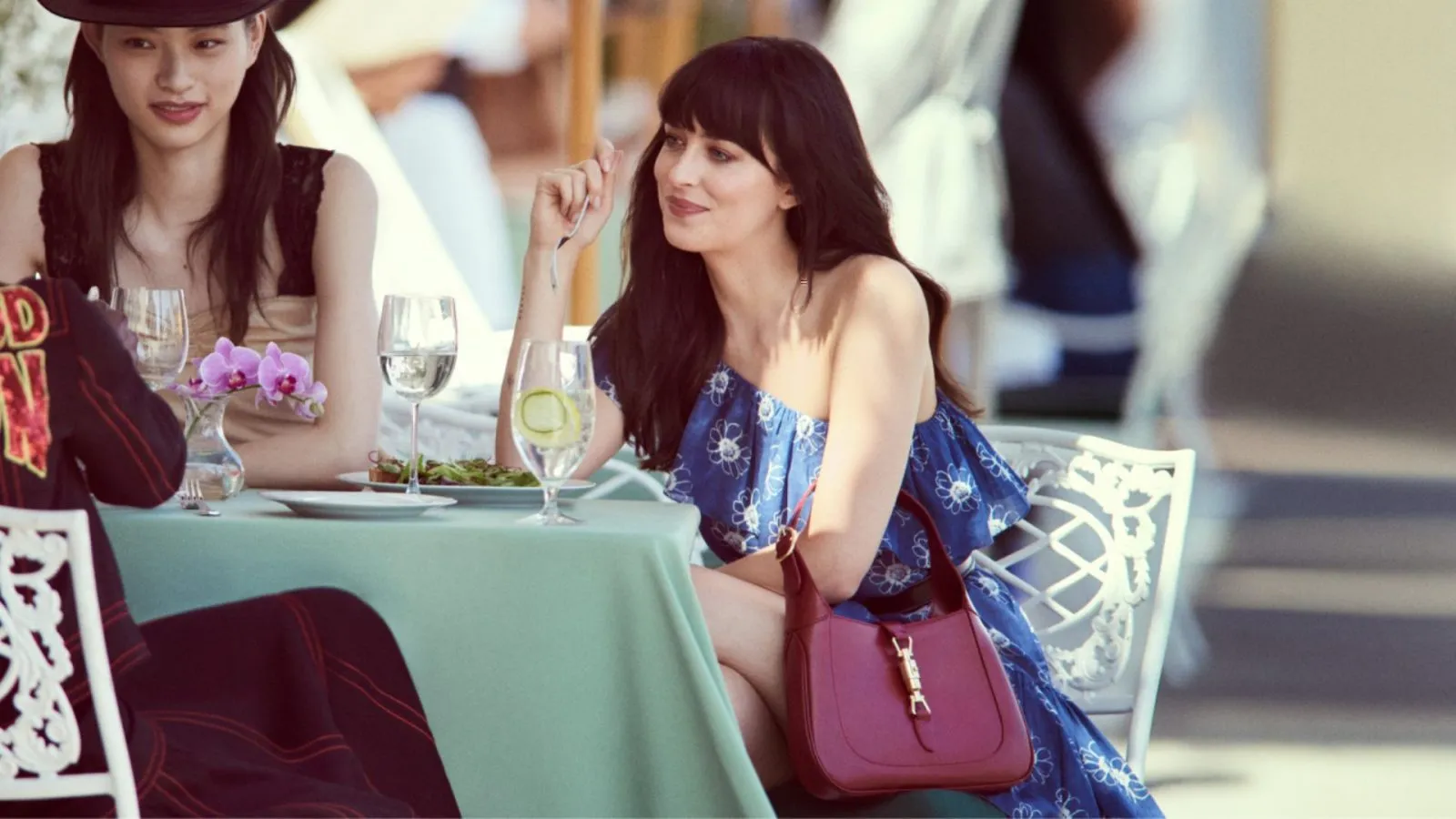
Handbags are more than just functional accessories; they are statements of style and symbols of status. Over the years, several handbags have achieved iconic status, becoming synonymous with luxury and timeless fashion. Here’s a look at some of the most iconic bags and the stories behind their names.
Hermès Birkin
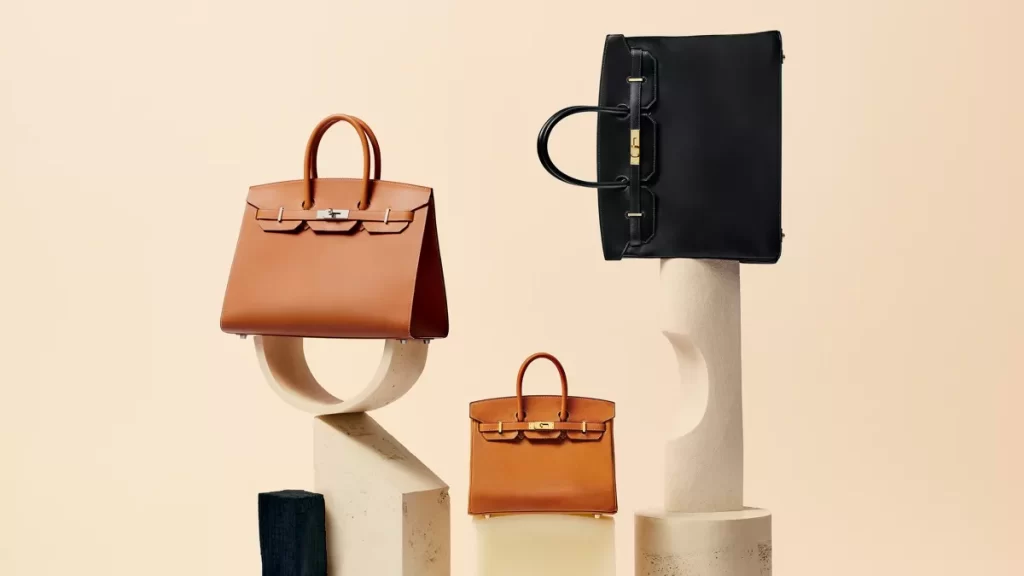
Origin: The Birkin bag was born from a chance encounter between actress and singer Jane Birkin and Hermès CEO Jean-Louis Dumas on a flight in 1981. Birkin mentioned her struggle to find a perfect weekend bag, leading Dumas to design a bag tailored to her needs.
Icon Status: The Birkin is known for its exclusivity, craftsmanship, and high price tag. It has become a symbol of wealth and luxury, often with a waiting list of years.
Chanel 2.55
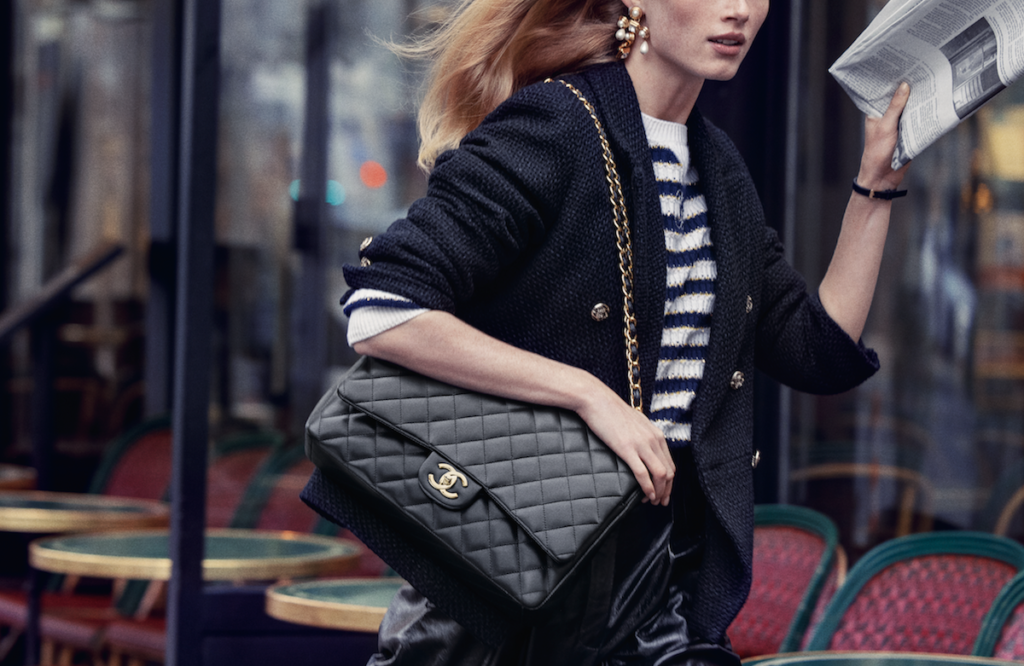
Origin: Created by Coco Chanel in February 1955 (hence the name), the Chanel 2.55 was revolutionary for its time, introducing the concept of a shoulder bag, freeing women from the inconvenience of clutch bags.
Icon Status: With its quilted leather, chain strap, and distinctive CC lock (added in the 1980s by Karl Lagerfeld), the 2.55 remains a timeless piece, beloved by fashionistas worldwide.
Louis Vuitton Speedy
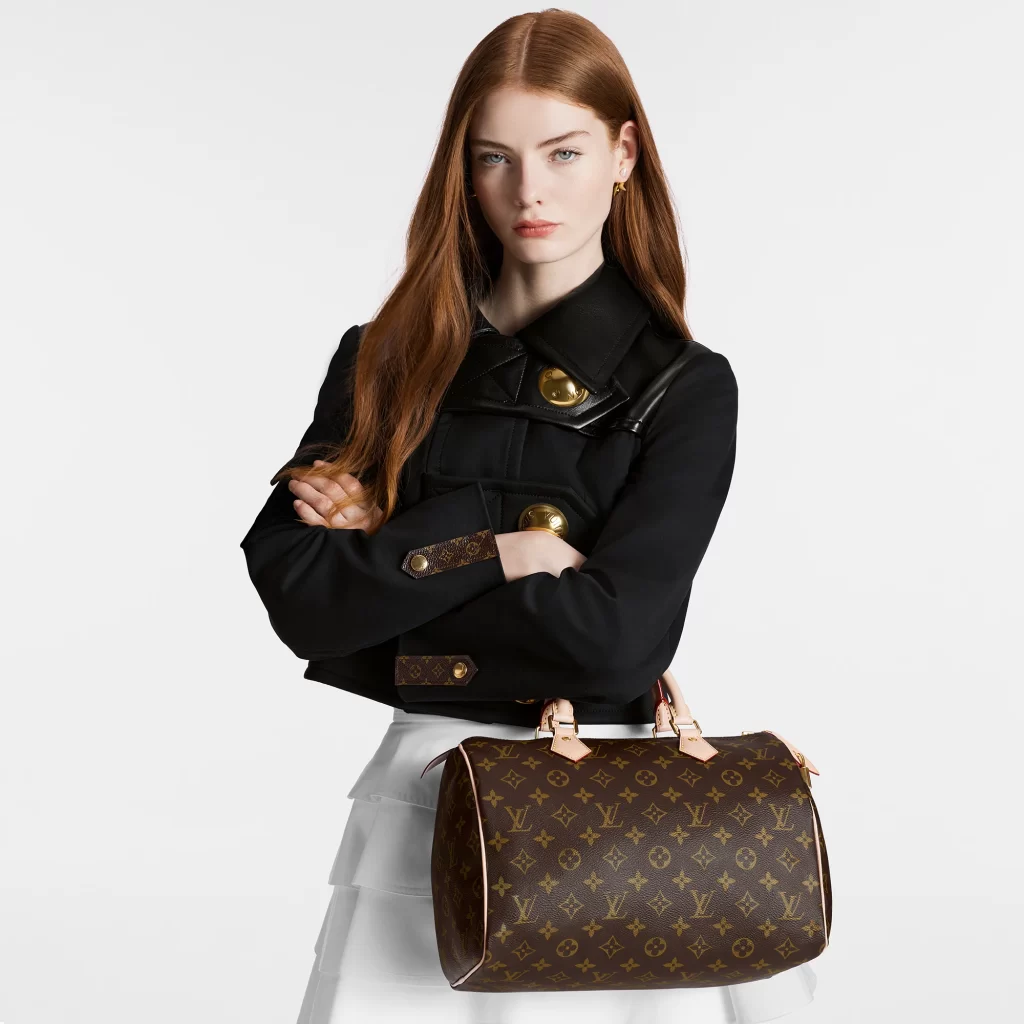
Origin: Introduced in the 1930s, the Speedy was designed as a smaller version of the Louis Vuitton Keepall. It became particularly popular in the 1960s when Audrey Hepburn requested a smaller version, leading to the creation of the Speedy 25.
Icon Status: Known for its classic monogram canvas and practicality, the Speedy is a versatile bag that has remained a staple in the fashion world for decades.
Dior Lady Dior
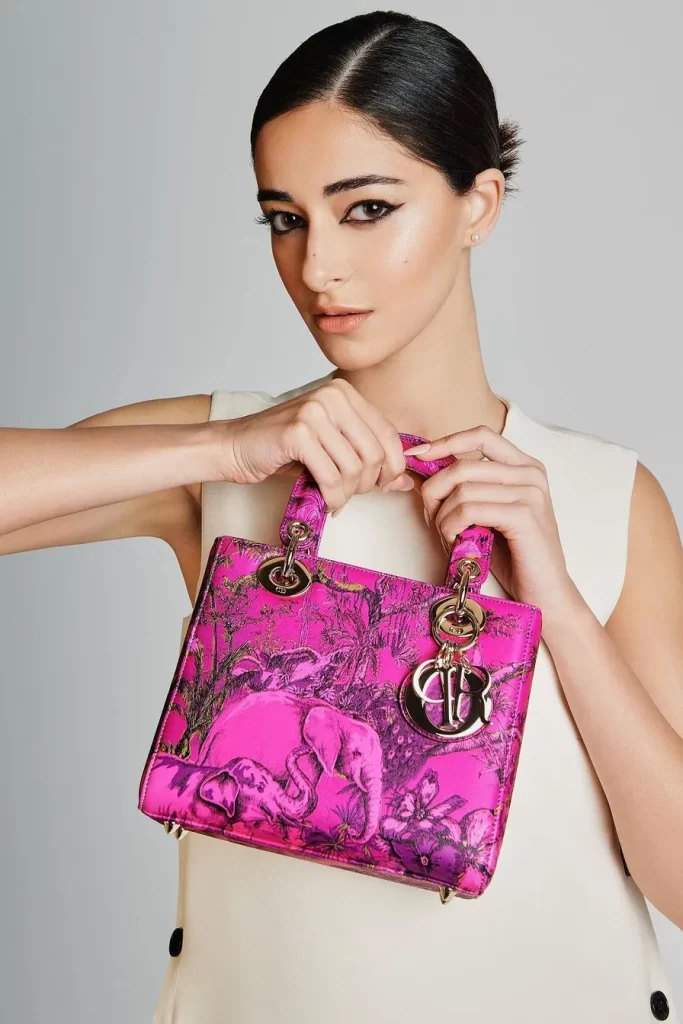
Origin: First presented in 1994, the Lady Dior bag was initially known as “Chouchou.” It gained its iconic status when Princess Diana was photographed with it in 1995, leading to its renaming in her honor.
Icon Status: The bag’s signature cannage stitching and dangling Dior charms make it instantly recognizable. It’s a favorite among celebrities and royalty, symbolizing elegance and sophistication.
Gucci Jackie
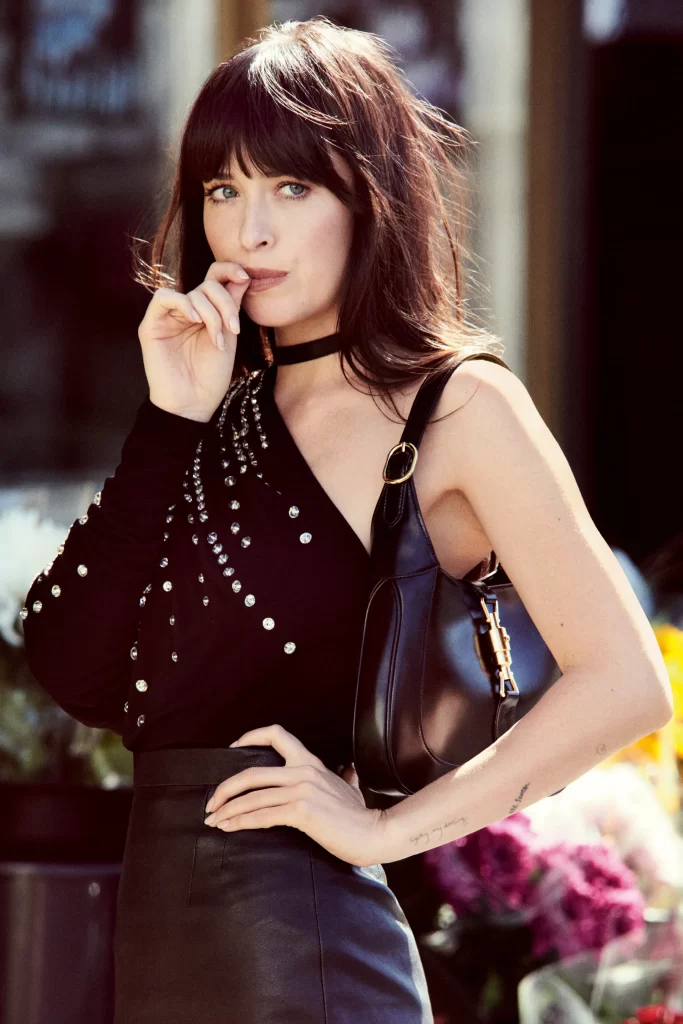
Origin: Originally called the Fifties Constance, this bag was renamed the Jackie after Jackie Kennedy was frequently photographed carrying it in the 1960s.
Icon Status: The Jackie bag’s hobo shape and piston strap closure make it a timeless piece. It has seen numerous revivals and remains a classic in the Gucci lineup.
Prada Galleria
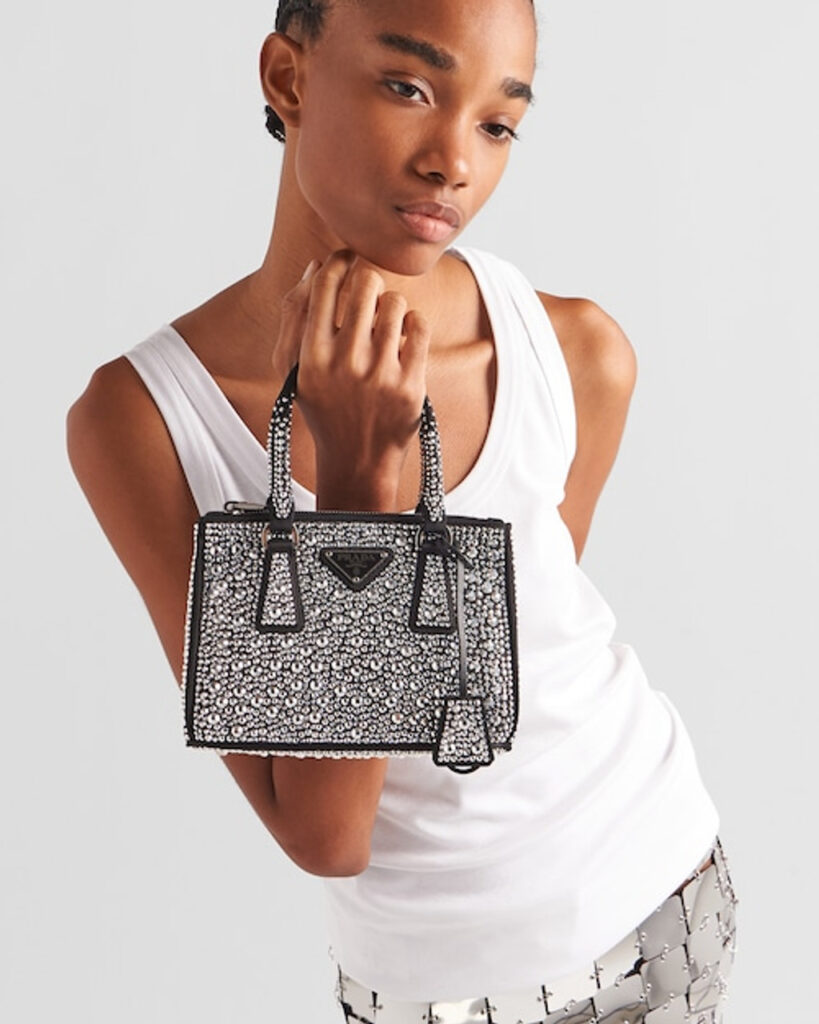
Origin: Named after the historic Prada boutique in Milan’s Galleria Vittorio Emanuele II, the Galleria bag epitomizes the brand’s heritage and craftsmanship.
Icon Status: With its clean lines, structured shape, and Saffiano leather, the Galleria bag is a symbol of modern elegance and understated luxury.
Fendi Baguette
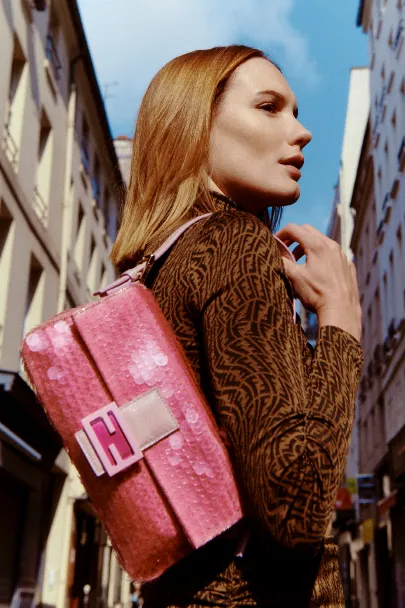
Origin: Designed by Silvia Venturini Fendi in 1997, the Baguette was named for its shape, resembling the French baguette loaf, and designed to be carried under the arm.
Icon Status: Popularized by its appearance on the TV show “Sex and the City,” the Baguette became a must-have accessory, famous for its countless variations in colors and materials.
Balenciaga City
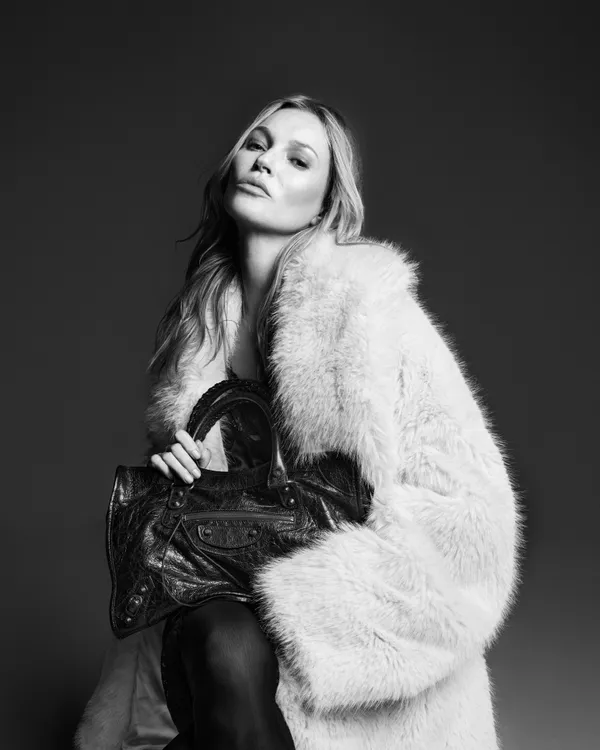
Origin: Introduced in the early 2000s, the Balenciaga City bag, also known as the Motorcycle bag, was designed by Nicolas Ghesquière. Its casual yet chic design quickly gained a cult following.
Icon Status: Known for its slouchy silhouette, distinctive hardware, and tassels, the City bag became an icon of the 2000s and continues to be a beloved piece.
These iconic bags have transcended fashion trends, becoming enduring symbols of style, craftsmanship, and luxury. Each bag tells a unique story, adding to its allure and making it a coveted piece for fashion enthusiasts around the world. Investing in one of these iconic bags is not just about owning a stylish accessory but also a piece of fashion history.
-
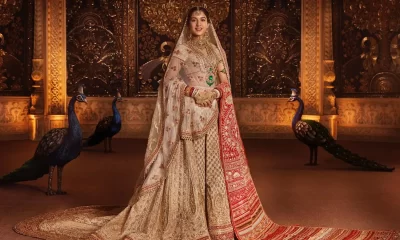
 Style11 months ago
Style11 months agoBridal Guide : Best Looks of Radhika Merchant Ambani
-
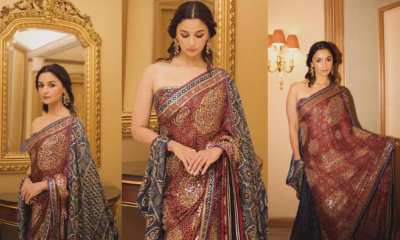
 Fashion1 year ago
Fashion1 year agoMost Discussed Ajrakh Saree of Alia Bhatt
-
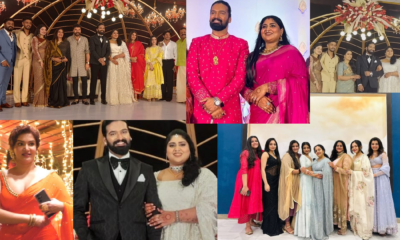
 Entertainment1 year ago
Entertainment1 year agoThe Most Stylish Guests of Bhagya Suresh Reception
-
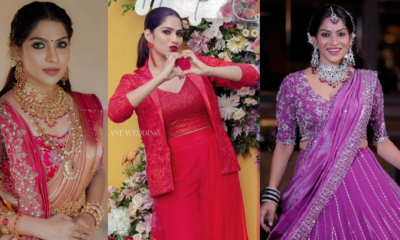
 Entertainment1 year ago
Entertainment1 year agoBridal Bliss : All Bridal Looks of Swasika Vijay
-
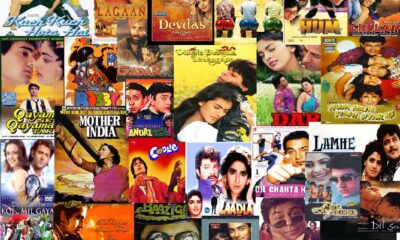
 Movies1 year ago
Movies1 year agoA Nostalgic Journey Through Love &Cinema : Best Bollywood Romantic 90s Movies
-
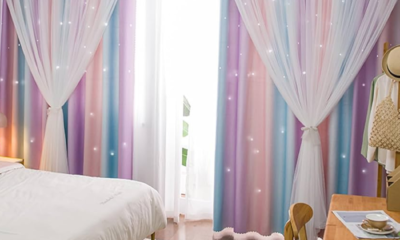
 AD8 months ago
AD8 months agoPopular Curtain Fabrics to Consider for Your Home
-
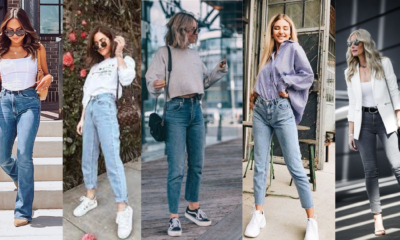
 Fashion1 year ago
Fashion1 year agoMajor Denim Trends You Need To Know in 2024
-
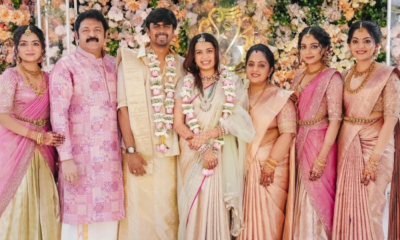
 Events9 months ago
Events9 months agoBest of Fashion Looks : Diya Krishna Wedding


